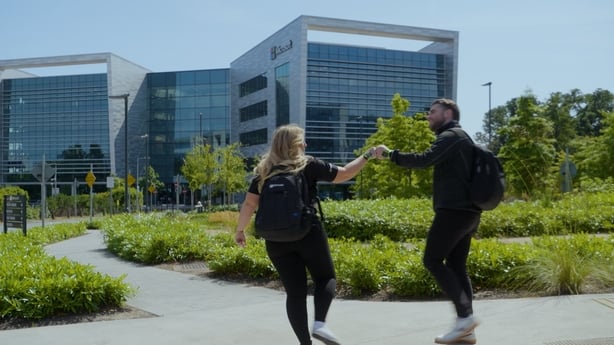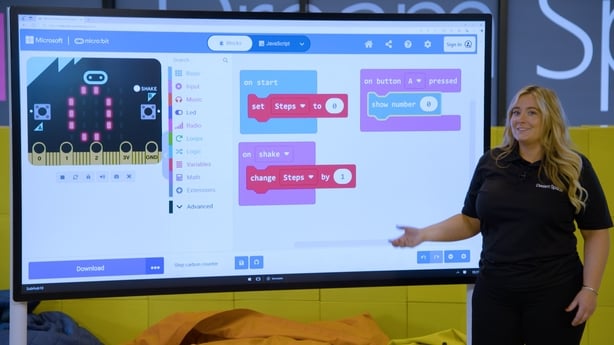In Episode 2 of Code Green, Michael and Corey take students on a mission to become Energy Detectives, helping them investigate energy use in their school.
By learning about clean energy sources and coding a step carbon counter using the micro:bit, students will explore how small changes can lead to big impacts on energy conservation and sustainability.
This episode not only introduces key STEM concepts but also empowers students to take action by reducing energy waste in their daily lives.
Watch the show above and download the Full Educator guide here!

Through this fun and hands-on lesson, students will learn to:
- Understand what energy is and how it is used.
- Explore different types of clean energy.
- Identify areas in our school system where energy can be saved.
- Program a micro:bit to track steps and calculate carbon savings.
By the end of the episode, students will have a deeper understanding of how energy is used, where waste occurs, and how coding can be used to measure and reduce their carbon footprint. They'll also develop key STEM and critical thinking skills through the hands-on activity of building their step carbon counters.
This episode is packed with practical activities and real-world problem-solving, showing students how their everyday choices impact the environment. So, head over to MakeCode for micro:bit and start coding your way to energy savings!

Curriculum Links
Primary Mathematics Curriculum
Strand: Data and Chance
Strand Unit: Data
Learning Outcomes:
- Pose questions of interest and collect, display and critically analyse data in a range of ways for a range of purposes and communicate the findings.
- Critically analyse and evaluate findings; and communicate inferences, conclusions and implications from the findings.
Science, Technology and Engineering Education
Strand: Technology
Learning Outcomes:
- Create and test instructions (algorithms) or programs to achieve a desired outcome.
- Appreciate the role that data plays in the digital world; select and use a range of digital technologies to access, select and present information/data that is relevant to their learning.
Strand: Health Education – SPHE
Strand Unit: Motivation for healthy living
Learning Outcome:
- Demonstrate a willingness to make positive choices to nurturing their wellbeing in areas such food, hygiene, sleep, rest and relaxation, and meaningful physical activity, recognising changing needs as they grow and the importance of a balanced lifestyle.

